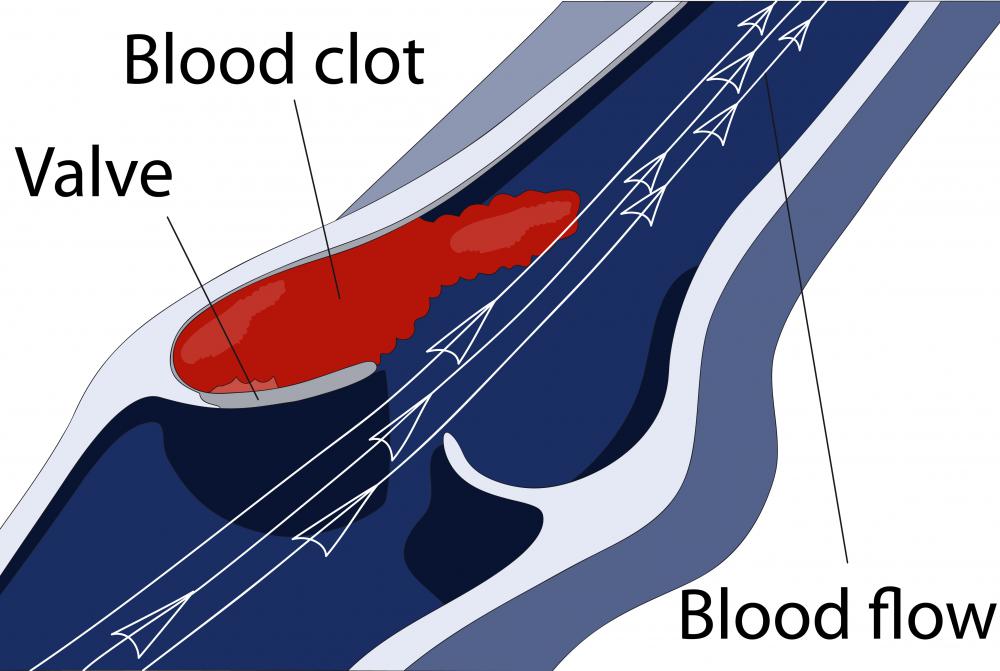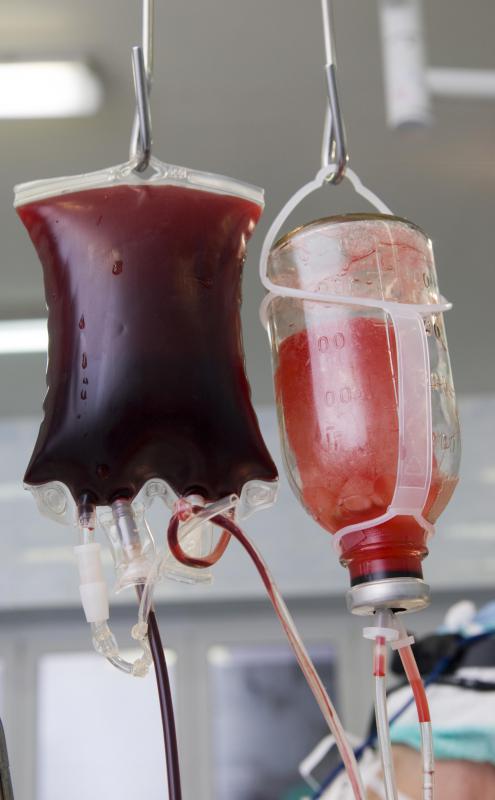At TheHealthBoard, we're committed to delivering accurate, trustworthy information. Our expert-authored content is rigorously fact-checked and sourced from credible authorities. Discover how we uphold the highest standards in providing you with reliable knowledge.
What Is Factor VIII Deficiency?
Factor VIII deficiency is a blood disorder characterized by insufficient or poorly functioning factor VIII, one of the blood clotting factors, also known as anti-hemophilic factor (AHF). Factor VIII deficiency is the cause of hemophilia A, a disease in which the blood does not clot well after injury, causing symptoms such as serious bleeding and frequent bruising. Factor VIII is expressed by the F8 gene on the X chromosome and is a recessive X-linked trait. It only affects males, or females who inherit the defective F8 gene from both their parents. Women are much more often asymptomatic carriers of the genetic defect.
Factor VIII deficiency is the most common cause of hemophilia. It results in the formation of blood clots with insufficient amounts of the protein fibrin, leading to weak and slow forming clots. About one in every 5,000 men suffers from Factor VIII deficiency, and 30% have no family history, suggesting recently mutated genes. Different types of mutations in F8 lead to different types of Factor VIII deficiency, and hemophilia A varies in severity depending upon how much Factor VIII is present in the patient.

Symptoms include internal and external bleeding episodes, especially after trauma. Patients with more severe forms of the disease may experience excessive bleeding as a result of minor injury. Bleeding into joints can lead to chronic symptoms including pain, impaired movement, and even disfigurement. Hemophilia A is often diagnosed early in life, for example when a newborn develops severe bruises or intercranial hemorrhage as a result of forceps or vacuum delivery. Excessive bleeding during a routine blood test or a circumcision can also be the first manifestation of the disease.

Hemophilia A is treated with intravenous transfusions of Factor VIII, either as needed, or as a preventative measure depending upon the severity of the disease and the particular needs of the patient. The disease may also be treated with desmopressin, which releases Factor VIII stored in the walls of the patient's blood vessels. In some cases, the patient develops inhibitory antibodies to the Factor VIII delivered through transfusions. Transfusions of Factor VII are sometimes helpful in such cases.
AS FEATURED ON:
AS FEATURED ON:

















Discuss this Article
Post your comments